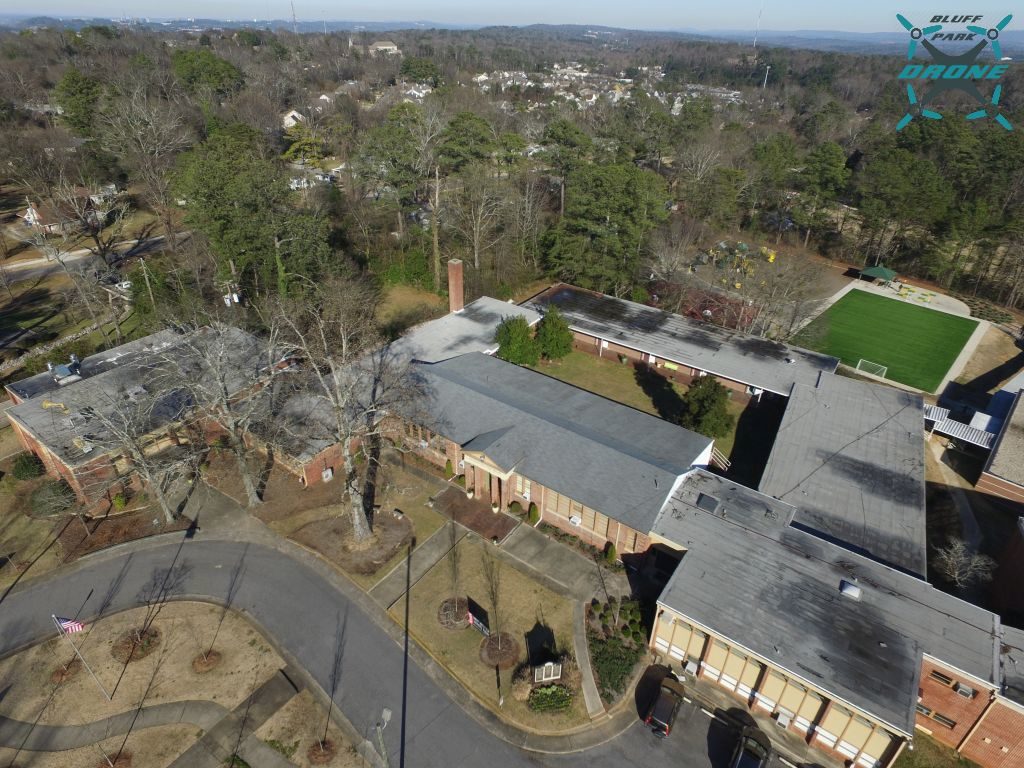People have some big misconceptions about UAVs (drones), so this page will hopefully answer some of these. If you have a question that this section doesn’t answer, drop us a note at bluffparkdrone@att.net and we’ll try to answer it.
- Can drones spy on me? – Yeah, drones could spy on you, but they wouldn’t be very good at it. You see, drones are very loud and have a bunch of lights on them while they are flying. Inconspicuous would not be one of the words you could use to describe a drone when it’s below 300 feet. The second reason it would be difficult to spy on someone is that drones require a direct line of sight from the controller to the drone. In other words, if a drone flew behind a house, out of direct visual contact with the controller, the drone control would be lost, and could result in a crash. Finally, drones weren’t made for close-ups. They were made for wide angle shots from heights above 30 feet. In order to capture a person’s face so that it is recognizable, the drone must be within 15′ of the subject.
- Can drones fly long distances? – Sure, some drones, like the Phantom 3 Professional that BluffParkDrone uses has been known to fly distances of over 3 miles. However, that’s on a perfectly flat terrain with no obstructions (trees, houses, cell phone towers). More realistic distances are under 1000 feet. In areas like Bluff Park, 300-500′ is the maximum, with 100′ being the norm. The other limiting factor is that the drone operator, who is holding a remote control, must be able to visually see the drone the entire time, or the signal between the controller and the drone will be lost, which could result in a crash. Another factor that limits distance (and altitude) is battery life. Flight time on a fully charged battery is around 25 minutes. Weather factors, such as wind, temperature, humidity, etc. could reduce that time.
- Can drones fly to very high altitudes? – Again, it depends on the drone. The Phantom 3 Professional has been able to go up to 1.5km, or about a mile high. Technically, yes. Legally, no. The Federal Aviation Administration (FAA) requires that we stay below 400′ Above Ground Level (AGL), unless we receive a waiver. There are other exclusions regarding the altitude restriction. The stability of the drone, which keeps it’s position thanks to a GPS that contacts up to 17 satellites (both US and European satellites are locked on to), is nearly perfect to the legal altitude. Beyond that it begins to loose stability.
- Can you videotape my special event like a wedding, or sporting event? Yes we can. But we will NEVER fly above people, so the video and photos will be from outside the area where people are gathered. We will never fly near power lines, or near areas where we could lose control of the drone. Again, these are FAA regulations.
- Who is behind BluffParkDrone? BluffParkDrone is part of RFS Enterprises, LLC, which is owned by long-time Hoover, Alabama resident Robin Schultz. Other businesses and organizations that Robin operates include PC Medics of Alabama, BluffParkAL.org (THE Bluff Park Neighborhood web site), Learning To Be The Light, which furnishes PCs to low-income Hoover City Schools students at no charge.
- What’s an FAA Part 107 License? Drone’s (Small Unmanned Aerial Vehicles, or sUAVs) have become very popular over the past few years, however, there were no regulations for commercial sUAV pilots. In 2016 the FAA created the Part 107 license to fill this gap. Only those holding the Part 107 license may operate sUAVs in a commercial environment. In other words, if the Remote Pilot in Commend (RPIC) does not hold a Part 107 license, they cannot charge for their services. There’s a good reason for this. Obtaining the Part 107 license is similar to obtaining a regular pilots license. The RPCI must be proficient in reading sectional charts, reading weather reports, interpreting weather based on current conditions, understand flight regulations for both sUAVs and regular manned aircraft, understand flight patterns, and a host of other items. Passing the exam requires months of studying, and the license must be renewed every two years. The reason for this is simple: safety. A licensed sUAV pilot will understand all of the measures necessary to never put his client or the general public in danger. In addition to the license, a reputable aerial photography company will also hold liability insurance. Before hiring a drone company, ask to see their FAA Part 107 license, as well as their insurance policy.

